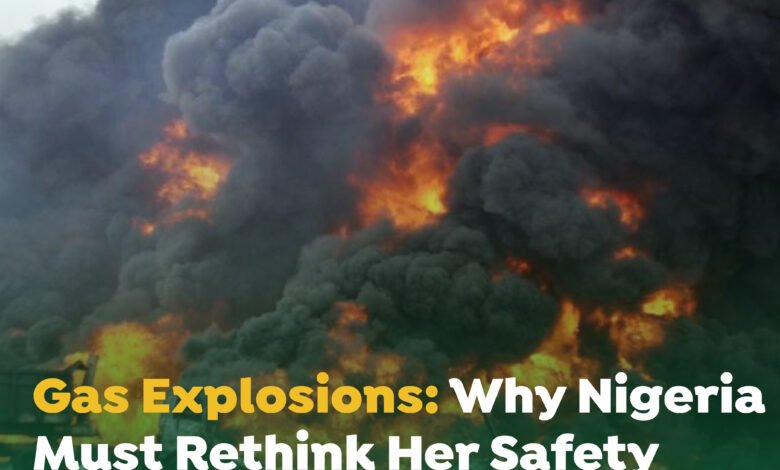
There has been a noticeable increase in the use of gas across Nigeria. Homes and businesses are switching to cleaner, more efficient Liquefied Petroleum Gas (LPG), but a recent string of explosions has exposed a critical safety gap.
From Ogun to Lagos, these fiery incidents have left a trail of death and destruction, raising urgent questions about the country’s preparedness for a gas-reliant future.
Disturbed by the frequent tragedies of explosions across the country, Nigerians have taken to different platforms to express their concerns and worries over what they termed the government’s ineptitude in handling the menace and its preparation towards stemming future occurrences.
The Federal Fire Service reported 649 fire incidents in the fourth quarter of 2022, with an aggregate loss of N23 billion and 28 fatalities.
Safety experts say most of the gas explosions in the report were triggered by human errors, and as such, preventing future occurrences will also be handled by the people.
‘Cooking Gas, the Danger’
Experts have noted that most gas explosions in Nigeria are linked to Liquefied Petroleum Gas (LPG), also known as cooking gas. They noted that the increase in the usage of cooking gas has led to the proliferation of gas retail shops and stations in residential areas, which have heightened the likelihood of disaster given their extremely dangerous and highly flammable content.
According to experts, some cylinders have expired, yet they are still being used in some homes, shops, and industries. They contended that cylinders in such states or conditions could cause explosions with fatal consequences.
Other causes include transporting gas with rickety trucks, filling gas in substandard locally made and imported cylinders, among others.
‘Combating the Menace’
Governments across levels, particularly the federal government, have rolled out several measures to combat the menace of gas explosions in the country.
The federal government created the defunct Department of Petroleum Resource (DPR) to exercise influence over the oil and gas industry as well as gas stations and ensure they comply with standards.
There is also the National Petroleum Policy of 2004, which outlines the objectives and strategies of the federal government for the petroleum sector and gas safety.
Others are the Gas Safety Regulations of 2012, designed to provide guidelines for the safe handling, storage, and transportation; and Licensing and Permitting, designed to ensure that gas stations and transportation companies obtain licenses and permits from DPR before they begin their operations, among other measures.
However, experts decried that none of these measures has effectively tackled the incessant gas explosions, especially on the roads. Further, they opined that weak enforcement, corruption, inadequate training, lack of public awareness, substandard materials and equipment, and poor maintenance and infrastructure have hindered the smooth implementation of the stated policy.
‘Preventing Future Occurrence, a Collective Responsibility’
As the President Bola Ahmed Tinubu-led administration gears up to increase the usage of gas in the country in the next few weeks, experts say there is a need for the government to critically look into various safety measures surrounding it and rethink various government regulatory frameworks on it.
Experts also say that to prevent rickety trucks from transporting gas, the collaboration of FRSC, the police, the FFS, and state governments is needed. They note that rickety trucks and tankers have triggered several gas explosions in the country. They, therefore, urge the FRSC and the oil regulators to stop rickety trucks and tankers from using the roads.
Lastly, they tasked the government, both in the state and local areas, to stop approving the construction of gas and petrol stations in populated residential areas. They added that the governments should mandate existing stations to relocate to places where any incident of explosion would neither affect the people nor destroy their property.
While waiting on the government to tie every loose end as far as safety regulations are concerned, the fight against gas explosions demands a united front.
The government must take the lead in tightening regulations, enforcing standards, and fostering public awareness. But Nigerians also have a role to play – by demanding safe practices, reporting hazards, and prioritizing safety over convenience. Only through a collective effort can Nigeria tame the blazing threat of gas explosions and harness its benefits safely.





